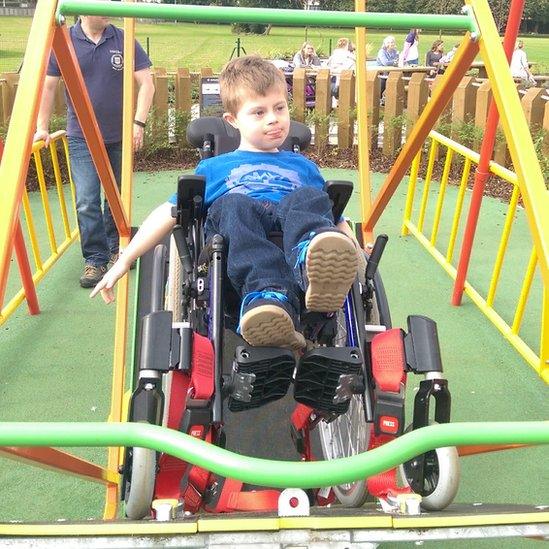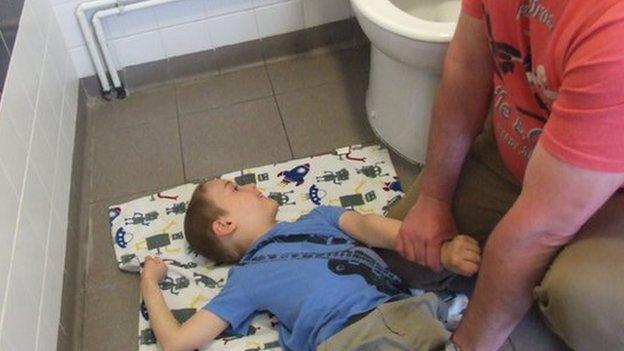'No dignity' for disabled kids in parks
- Published

Morag Mullan's son Luke was able to use this swing in Portstewart, 50 miles from his Newtownabbey home
It is getting harder to find places for disabled children to visit where they "don't feel ostracised", says one of the founders of a campaign for better facilities for disabled children.
NI Parents for Change was started by the mothers of three children at Hill Croft Special School in Newtownabbey.
It began after a playpark opened in the area with only one item, a roundabout, that a child in a wheelchair could use.
The lack of proper changing facilities is another concern being highlighted.
The group's Morag Mullan, whose seven-year-old son Luke uses a wheelchair, said that while there were changing facilities for babies as well as disabled toilets, these did not cater for older children who cannot stand.
'No dignity'
"We have had to lie our children on the floor in a toilet to change them," she said.
"There's no dignity for kids in that, or for their adults.
"It's just getting harder and harder to find places we can actually take our kids to where we don't feel ostracised, because you're walking round thinking there's nothing here, he needs to the toilet, there's nowhere to go, so what do we do, do we stay at home?
"I know legislation says that they have to provide a disabled toilet, but they're not providing any facilities for disabled people."
Mrs Mullan said that the nearest playpark to her where every apparatus is accessible for wheelchair users is in Portstewart - 50 miles away. It includes a swing adapted for children in wheelchairs.
"You can't say 'let's go to the park and we'll go to Portstewart today', it's just not feasible," she said.
"The day that we were there, the amount of people that came to watch him [Luke] on that swing, they just thought it was absolutely fantastic."
'Push it under the table'
Mrs Mullan said the lack of facilities in Northern Ireland contrasted with other countries she had visited, including the United States and Spain, which provided for disabled children.
She and her husband had raised the issue with local politicians, but nothing had been done, she said.
"It just seems like disability - push it under the table and people will forget about it," she said.
"But you just never know when it's going to come knocking on your own door, people don't have to be born disabled, it can happen any time in life."
- Published28 February 2015
